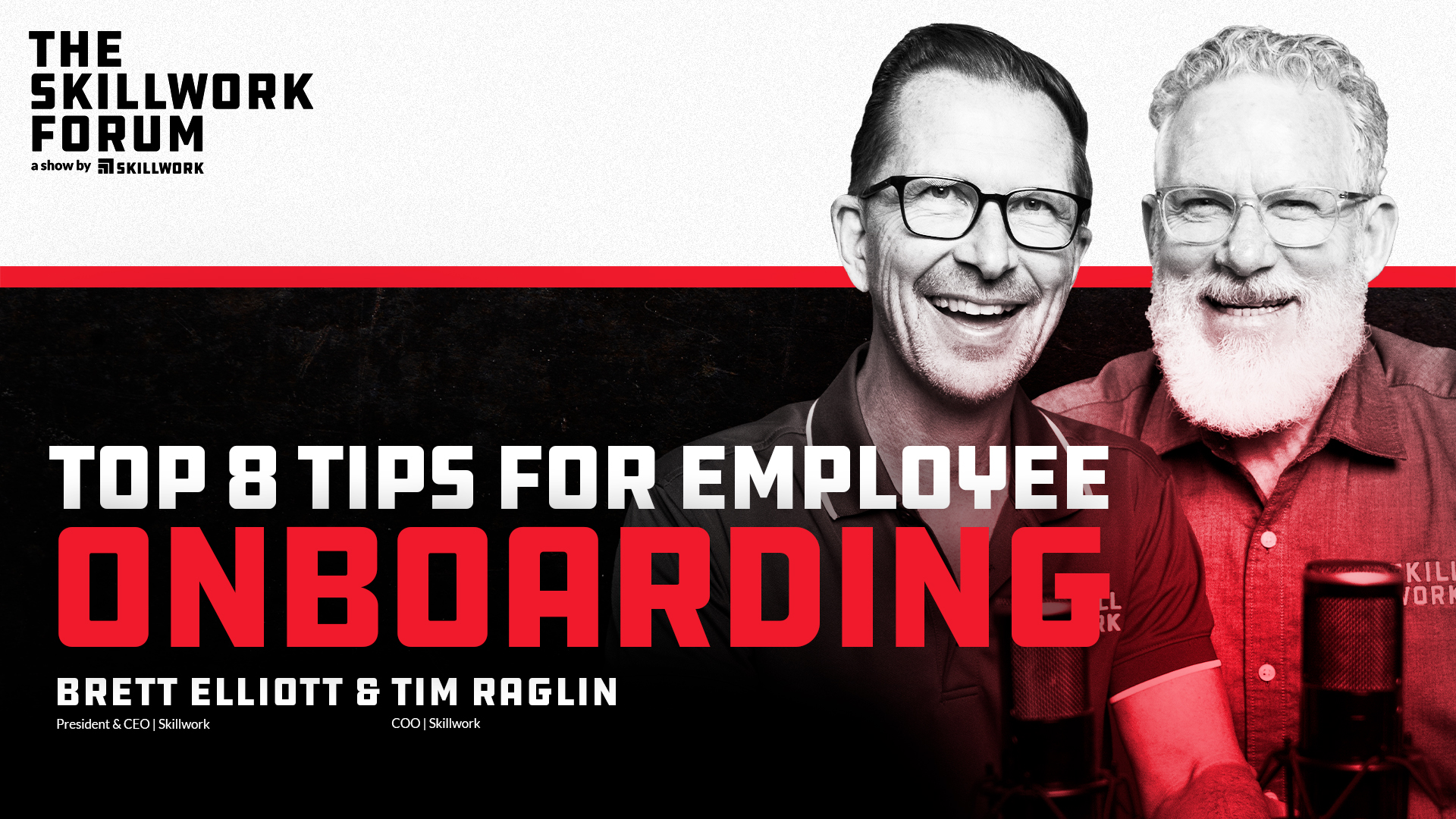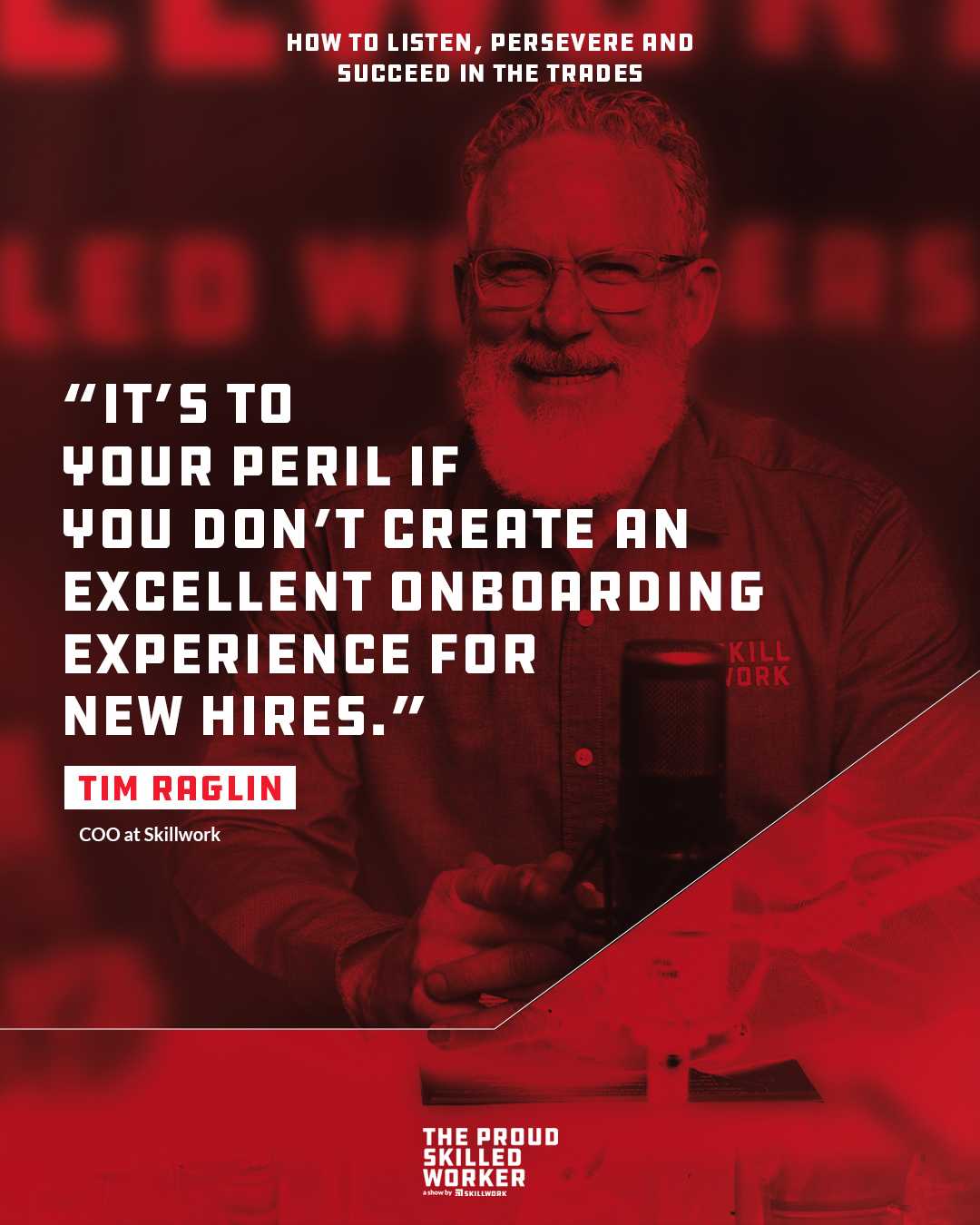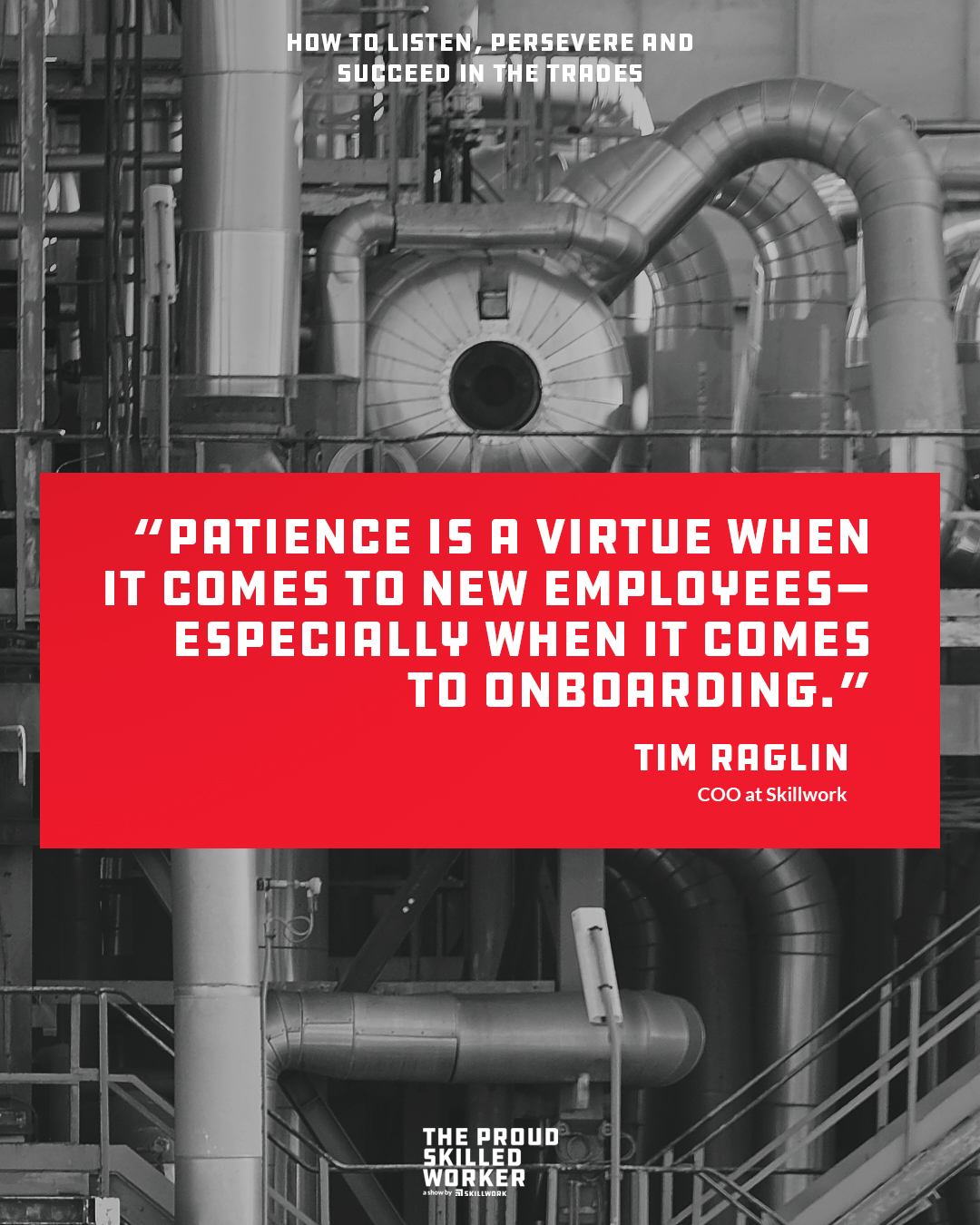8 Key Onboarding Tips for Employers

Today, we’re talking about eight keys to onboarding. Employers often overlook the importance of onboarding and training, but it can make or break a new hire’s experience at your company. How does onboarding affect retention? Research shows that organizations with a good onboarding process improve new hire retention by 82%.
Conversely, a bad onboarding experience will result in low retention and high turnover rates. Given the skilled trades shortage, we're competing really hard for skilled workers right now, so you can’t afford to scare them away. As you’ll see, the benefits of onboarding outweigh the work it takes to create a successful process.
If you don’t already have an onboarding process in place, or you do, and it’s subpar, you’re not alone. Eighty-eight percent of organizations don’t onboard well. This blog shares best practices for onboarding new employees to help you improve your process today.
Now that you know some effective onboarding statistics, keep reading to learn why onboarding is so important.
Best Practices for Onboarding New Employees
What’s the purpose of onboarding? An onboarding program is designed to develop new employees with the necessary skills, knowledge, and behaviors to become effective and successful at their job. Follow these eight keys to onboarding if you want to get the most out of your onboarding process.
1. Be Positive, Welcoming, and Communicate Value
First, you need to view onboarding new hires as an investment, not a cost. When you see things as an investment, you will continue to pour into them. Whereas if you just see something as a cost, it almost becomes a necessary evil, and you treat it as such.
At Skillwork, we have a group called the Skillwork Engagement Team, and their mission is to create a world-class experience for every one of our skilled workers. “World-class experience” may be an overused phrase, but it'll have a huge impact on your people if you really mean what you say and do it.

2. Start Early, Don’t Push
New employee onboarding is packed with things to do: contracts to sign, benefits packages to discuss, job functions and skills to learn, etc. Be sensitive and realistic regarding your timeline. If you move too fast, employees may walk away. Establish a sense of urgency, communicating the importance of onboarding and training, but don’t rush it.
How long does onboarding take? On average, onboarding takes at least three months, but research suggests that companies can increase employee retention by extending it through a new employee’s first year.
3. Set Clear Expectations and Communicate Clearly
As Dave Ramsey says, “It’s unkind to be unclear,” and we’re saying the same thing here when onboarding new hires. Set clear, reasonable expectations early. Give new employees a chance to ask questions if they need clarification on something.
There's a reason why turnover rates are high. Whether it's on the employee’s part or the employer’s, there’s been a mistake. Other times, it's just not a good fit. Don’t ignore red flags and let them drag on and on. Most turnover happens in the first 30-90 days, sometimes even sooner. But honestly, the sooner, the better if it’s not working out.

4. Minimize Surprises
Minimize surprises when onboarding new hires. If the interview paints a pretty picture of the company culture, people, opportunities, etc., it should be an accurate description. If your workplace isn’t like that in reality, you’re pulling the old bait and switch move. Be transparent. People can handle the truth, but they hate feeling like you're being dishonest or ingenuine.

5. Make the First Day Awesome
Why is onboarding critical? Onboarding is important for new employees because it makes them feel comfortable and capable. Give detailed instructions about where to park, where to sit, who to see, etc., so new hires don’t feel lost on their first day.
Listen to the podcast for a story Tim tells about a terrible first day on the job after leaving the United States Navy. Once he got into a position where he was responsible for onboarding new hires, Tim made sure that his poor experience wasn’t repeated. Set the tone for new hires by making the first day awesome.
6. Exercise Patience
Data suggests that new hires only have a 25% productivity rate in their first month after completing new employee training. So, don’t judge their work on day one—new hires barely know their way from the parking lot to the break room!
Refrain from making snap judgments or decisions during the onboarding process. New employees will inevitably make mistakes, forget orientation, and miss a step or two. Patience is a virtue, so remember to exercise it when onboarding new hires.

7. Ask for Feedback
Soliciting honest feedback from new employees is critical for reducing 90-day turnover and improving retention. Employee feedback is so valuable, and employers should be confident (and humble) enough to ask for it. Here are some questions to ask after onboarding new hires:
- What part of the process went well for you?
- What part of the process could have been better?
- How would you rate your onboarding experience?
- Is the job what you expected it to be?
- Do you understand what’s expected of you?
Continuously improve your onboarding process for future employees by asking for feedback.
8. Give Feedback
Similarly, give new employees feedback about how they’re doing and coach them along the way so they feel supported. Give everyone the tools they need to succeed, but you'll know if they choose not to use them.
If you have an outstanding new employee, don’t underestimate the power of affirmations—encourage them, highlight areas of excellence, and, if possible, reward them. Seventy percent of employees with exceptional onboarding experiences say they have "the best possible job." Aim to be that place of work.
Use these keys to onboarding to transform your onboarding process from OK to exceptional.
Find High-paying Trade Jobs Today
Are you a tradesman looking for work? Skillwork is a trade-specific travel staffing agency that knows how vital your skills are to our country’s growth and development. Our business model allows you to work in cities, environments, and companies all over the U.S, giving you unique opportunities and invaluable experience.
Additionally, those who work with us often make up to $18/hour more than anywhere else. Contact a Skillwork Recruiter today to learn more about the Skillwork advantage and start your journey towards high-paying skilled labor jobs.

